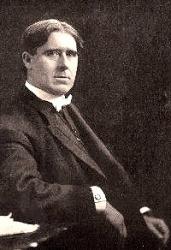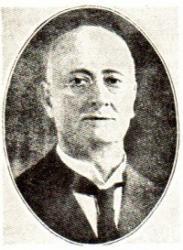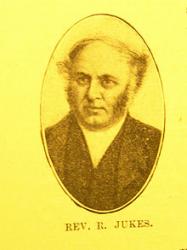Planning worship?
Check out our sister site, ZeteoSearch.org,
for 20+ additional resources related to your search.
- |
User Links
Person Results
‹ Return to hymnal





Export as CSV
J. M. Driver

1858 - 1918 Person Name: J. Merrite Driver Hymnal Number: d13 Author of "Suffer the children" in Songs of the Soul Rv John Merritte Driver DD PhD DL USA 1857-1918. Born in Jefferson County,IL, he attended Illinois Agricultural College and Boston University. He married Elzire (Elsie) Louise Wiley in 1880, and they had an adopted son, Merritte. He was ordained a Methodist Episcopal minister and served, beginning in Prairie, IL in 1880, and at a number of churches in Chicago and other cities. He pastored the People's Church, Chicago, IL, 1902-07. He was a member of the American & Asiatic Archaelogical Society. He traveled extensively in Europe. He was a lecturer, orator, and writer. He wrote several books, including fiction, history, travel, and a number of hymn lyrics and a few tunes. He co-edited “Songs of the soul” (1885).
John Perry
J. M. Driver
Henry Kirke White

1785 - 1806 Person Name: Henry K. White Hymnal Number: d139 Author of "The Lord, our God, is clothed in [with] might" in Songs of the Soul White, Henry Kirke, a gifted English poet who died early in life, was born in Nottingham, England, March 21, 1785. Very early he manifested a remarkable love for books and a decided talent for composition. But his parents were poor, and he was apprenticed in early boyhood to a stocking weaver, from which uncongenial servitude he escaped as soon as he could and began the study of law; but later he was converted and felt called to the ministry. The story of his conversion from deism to Christianity is briefly but beautifully told in the poem titled "The Star of Bethlehem." He entered St. John's College, Cambridge, in 1805 as a servitor; but died October 19, 1806, in the second year of his college course, when only twenty-one years of age. In 1803 he published a small volume of poems. Some of them are very fine, but no doubt he would have produced others far better if he had lived to the ordinary age of man. His rare poetic genius, his victory over skepticism and subsequent faith and piety, his hard struggle with poverty and early death invest the story of his life with more than ordinary pathos. His hymns, ten in number, appeared in Collyer's Collection, 1812.
Oft in danger, oft in woe 412
The Lord our God is clothed with 99
When marshaled on the mighty 124
Hymn Writers of the Church, 1911
============================
White, Henry Kirk, remarkable both for the early development of his genius and for the untimely termination of his brief life of splendid promise, was born at Nottingham, March 21, 1785. His father was a butcher, but his mother must have been a superior woman, since for a number of years she successfully conducted a boarding-school for girls. The writing-master in her establishment was for some time Henry's teacher, and under his instruction he made remarkable progress in Latin and other subjects. At the age of 13 he composed the lines "To an early Primrose," which were subsequently printed with his poems. At 14 he left school, and was put to the stocking-frame in order to learn prac¬tically the business of a hosier; but, disliking the employment, he was removed to an attorney's office in Nottingham, with a view to the legal profession. All his spare time was now devoted to literary pursuits, the acquisition of languages, and the composition of poetical and other contributions for the periodicals of the day. At the age of 15 he obtained from the Monthly Preceptor a silver medal for a translation from Horace, and a pair of globes for the best description of an imaginary tour from London to Edinburgh. When only 17 he was encouraged to publish his Clifton Grove and other Poems, which were certainly excellent as the compositions of a mere boy. About this time he was inclined to scepticism, but. through the perusal of Scott's Force of Truth and the arguments and appeals of a young friend, R. W. Almond (afterwards Rector of St. Peter's, Nottingham), he was led to earnest faith in Christianity. His well-known hymn "When marshall'd on the nightly plain" is understood to be a figurative description of his spiritual experience at this period.
He now desired to become a Christian minister, and through the generosity of his employers he was released from his articles in 1804. With the help of the Rev. C. Simeon and other friends, he became a student of St. John's College, Cambridge. There he speedily distinguished himself, and the highest honours seemed within his grasp; but over application to study destroyed his health, and he fell ill and died Oct. 19, 1806, in the 22nd year of his age. Universal regret was expressed at his untimely end. Southey published his Remains, accompanied by a short memoir. Lord Byron composed some beautiful lines on the sad event. Josiah Conder and others wrote commemorative verses. The entire literary young manhood of England and America seemed moved with sympathy. A monumental tablet, with a medallion by Chantrey, was erected in All Saints Church, Cambridge, at the expense of a citizen of Boston, in the United States. Ten hymns are ascribed to H. K. White, which were printed by the Rev. Dr. W. B. Collyer in his Supplement to Dr. Watts's Psalms & Hymns, London, 1812. Of these four of the most popular are annotated as follows: "Awake, sweet harp of Judah, wake"; "Christians, brethren, ere we part"; "Much in sorrow, oft in woe"; “When marshalled on the nightly plain." These are all in extensive use. The rest, all in common use at the present time, are:—
1. 0 Lord, another day has flown. Evening. From this the hymn "0 let Thy grace perform its part" is taken.
2. 0 Lord, my God, in mercy turn. Penitence and Faith.
3. The Lord our God is full [clothed in] of might. Divine Sovereignty.
4. The Lord our God is Lord of all. Divine Sovereignty.
5. Through sorrow's night and danger's path. The Resurrection. Sometimes given as "When sorrow's path and danger's road."
6. What is this passing scene? Human Frailty. This hymn consists of selected stanzas from his “Ode on Disappointment." [Rev. W. R. Stevenson, M.A.]
-- John Julian, Dictionary of Hymnology (1907)
Henry Kirke White
Margaret Mackay
1802 - 1887 Hymnal Number: d8 Author of "Asleep in Jesus, blessed sleep" in Songs of the Soul Mackay, Margaret, was born in 1802, and the only daughter of Captain Robert Mackay, of Hedgefield, Inverness. She was married in 1820 to Major William Mackay, of the 68th Light Infantry (afterwards Lt. Colonel) a distinguished officer who died in 1845. Mrs. Mackay died at Cheltenham, Jan. 5, 1887. In addition to various prose works Mrs. Mackay published Thoughts Redeemed; or Lays of Leisure Hours, 1854, which contained 72 original hymns and poems. [Rev. James Mearns, M.A.]
-- John Julian, Dictionary of Hymnology (1907)
Margaret Mackay
John Burton
1773 - 1822 Hymnal Number: d43 Author of "Holy Bible, book divine, Precious treasure, thou art mine" in Songs of the Soul Burton, John, born 1773, in Nottingham, where he resided until 1813, when he removed to Leicester, at which town he died in 1822. He was a Baptist, a very earnest Sunday School teacher, and one of the compilers of the Nottingham Sunday School Union Hymn Book, 1812. This book reached the 20th edition in 1861. The 1st edition contains 43 hymns which have his signature. He is known almost exclusively by one hymn, "Holy Bible, book divine" (q.v.). He was also author of The Youth's Monitor, and other similar productions for the young. Robert Hall wrote a recommendatory preface to one of his works. [Rev. W. R. Stevenson, M. A.]
-- John Julian, Dictionary of Hymnology (1907)
John Burton
J. Grigg
1720 - 1768 Person Name: Joseph Grigg Hymnal Number: d74 Author of "Ashamed of Jesus I never, I never will be" in Songs of the Soul Grigg, Joseph, was born in 1728, according to the D. Sedgwick’s Manuscript," but this date seems to be some six or eight years too late. He was the son of poor parents and was brought up to mechanical pursuits. In 1743 he forsook his trade and became assistant minister to the Rev. Thomas Bures, of the Presbyterian Church, Silver Street, London. On the death of Mr. Bures in 1747, he retired from the ministry, and, marrying a lady of property, look up his residence at St. Albans. He died at Walthamstow, Essex, Oct. 29, 1768. As a hymnwriter Grigg is chiefly known by two of his hymns, "Behold a stranger at the door"; and "Jesus, and can it ever be?" His hymnwriting began, it is said, at ten years of age. His published works of various kinds number over 40. Those in which his hymns are found are:—
(1) Miscellanies on Moral and Religious Subjects, &c, London, Elizabeth Harrison, 1756. (2) The Voice of Danger, the Voice of God. A Sermon Preached at St. Albans, and at Box-Lane, Chiefly with a View to the apprehended Invasion. By J. Grigg. London, J. Buckland, 1756. To this is appended his hymn, "Shake, Britain, like an aspen shake." (3) Four Hymns on Divine Subjects wherein the Patience and Love of Our Divine Saviour is displayed, London, 1765. (4) Hymns by the late Rev. Joseph Grigg, Stourbridge, 1806. (5) During 1765 and 1766 he also contributed 12 hymns to The Christians Magazine.
In 1861 D. Sedgwick collected his hymns and poems, and published them with a memoir as:
Hymns on Divine Subjects, * * * * London, 1861. This volume contains 40 "Hymns," and 17 "Serious Poems." In the “S. MSS." Sedgwick notes that in 1861 he omitted three hymns by Grigg, which were then unknown to him, viz.:—l) On "The National Fast," appended to a sermon preached at Northampton, Feb. 13, 1761, by W. Warburton, and published in London, 1761. (2) "A Harvest Hymn by the late Rev. Joseph Grigg," in 6 stanzas, in the Evangelical Magazine, July, 1822; and (3) On the Parable of Dives and Lazarus, dated "Feb. 15, 1767."
-- John Julian, Dictionary of Hymnology (1907)
J. Grigg
C. R. Blackall

1830 - 1924 Hymnal Number: d136 Author of "Sabbath home, blessed home" in Songs of the Soul Blackall, Christopher Ruby, M.D., born in New York State, 1830, and educated for the medical profession. For 15 years he followed his profession, including service in the army during the civil war. Subsequently he managed, for 14 years, a branch of the Baptist Publication Society, taking at the same time great interest in Sunday School work. He edited the Advanced Bible Lesson Quarterly, for 3 years, and also Our Little Ones.
1. The prize is set before us. Heaven anticipated. This is one of Dr. Blackall's most popular hymns for children. It was written in 1874 for the Sunday School of 2nd Baptist Church, Chicago, Illinois, and set to music by H. R. Palmer. It first appeared in Palmer's Songs of Love for the Bible School, 1874, from whence it has passed into numerous collections, including I. D. Sankey's Sacred Songs and Solos, Lond., 1881.
2. Follow the paths of Jesus. Following Jesus. This is included in the Baptist Hymn [& Tune] Book, Phila., 1871, No. 701.
3. Do the right, never fear. Duty . In W. R. Stevenson's School Hymnal, Lond., 1880, No. 269.
-- John Julian, Dictionary of Hymnology (1907)
C. R. Blackall
Richard Jukes

1804 - 1867 Hymnal Number: d164 Author of "'Tis better on before" in Songs of the Soul Rv Richard Jukes United Kingdom 1804-1867. Born at Clungunford, Shropshire, England, his father a stone mason, he was a prankster when young. He followed his father’s trade and became a stone mason for awhile before becoming an itinerant preacher. In 1829 he was part of a team missioning in Wiltshire and Aldbourne. His preaching was sometimes disturbed by efforts to disband the crowd, he even at times had eggs thrown at him. However, a society was formed and a barn was obtained for a place of worship. He was known as “the bard of the poor”. Over time he became a popular Primitive Methodist minister and hymn writer. He married Phoebe Pardoe (1805-1826) in 1825, but she died of typhus after less than a year of marriage. Later, after her death, he married Charlotte Smith (1806-1873), and they had eight children: Mariam, Charlotte, Thomas, Joshua, Amelia, Rowland, Richmond, and Martha. He ministered from 1827 to 1859 at 17 different circuits.. He ministry was widely appreciated. It is noteworthy that several of his appointments were to significant circuits of that time: Tunstall, Staffordshire, Ramsor, and Darlaston in the Black Country, where he spent a large part of his active ministry, retiring there. One trait he had was when writing hymn lyrics, he would try to pair them with popular tunes of the day and sing them in the streets so others would do the same.. and many did. He died at West Bromwich, England.
John Perry
Richard Jukes
David Nelson

1793 - 1844 Hymnal Number: d93 Author of "For O, we stand on Jordan's strand" in Songs of the Soul Nelson, David, M.D., son of Henry Nelson, was born near Jonesborough, East Tennessee, Sept. 24, 1793. He graduated at Washington College, Virginia, in 1810, and took his M.D. degree at Philadelphia in 1812. He acted for some time as a surgeon in the war against Great Britain. During that time he became an infidel, but returning to the faith, he, in 1823, resigned medicine and took up theology, and subsequently became a Presbyterian Minister. He held several appointments, and founded two manual-labour colleges, one at Greenfields, and the second near Quincy, Illinois. He died Oct. 17, 1844. His hymn, "My days are gliding swiftly by" (Death Anticipated), was written in 1835, to be sung to the tune of "Lord Ullin's Daughter." It is exceedingly popular. [Rev. F. M. Bird, M.A.]
--John Julian, Dictionary of Hymnology (1907)
David Nelson
John B. Matthias
1767 - 1848 Hymnal Number: d61 Author of "Deliverance will come" in Songs of the Soul Born: January 21, 1767, Germantown, New York.
Died: May 27, 1848, Hempstead, Long Island, New York.
Buried: Methodist churchyard, Hempstead, Long Island, New York.
Matthias moved to New York City as a young man, and attended the John Street Methodist Church. He was licensed as a Methodist preacher in 1793, and four years later Bishop Asbury ordained him a deacon. He entered the "itinerant connection" in 1811, and in 1813 Bishop McKendree ordained him an elder. He pastored at a number of locations in New York, and by 1836 was in Huntington, where he wrote Deliverance Will Come. In 1841, failing eyesight forced him to retire to Hempstead, Long Island.
Sources:
Choir Herald, June 1947, pp. 222-23
http://www.hymntime.com/tch/bio/m/a/t/matthias_jb.htm
=================
http://en.wikipedia.org/wiki/John_B._Matthias
John B. Matthias
J. W. Dadmun
1819 - 1890 Hymnal Number: d14 Author of "O the prospect, it is so transpsorting" in Songs of the Soul Rv John William Dadmun USA 1819-1890. Born at Cambridge, MA, he completed his education at the Wesleyan Academy, Wilbraham, MA. At 22 he joined the New England Methodist Conference and pastored churches in the towns of Ludlow, Southhampton, South Hadley Falls, Enfield, Ware, Monson, Ipswich, and Lowell, the first Methodist Church and Grace Church, Boston and First Church, Boston Highlands. For a number of years he was also prison Chaplain and Superintendent of schools in the city institutions of Boston at Deer Island, off the coast of Maine. He married Lucy Ann Dutton, and they had seven children: Lucy, Wiletta, Francina, Charles,William and two others. He was initiated into Masonry at the Mt. Lebanon Lodge in Boston, MA, and served as Grand Chaplain and District Deputy Grand Master, which he immensely enjoyed. He rose in ranks within the organization and was instrumental in forming the Mt. Vernon Chapter in Roxbury, MA. He was elected Grand High Priest of the Grand Chapter of MA. He was Knighted into the De Molay Commandery in Boston, serving several years and rising to Grand Prelate of MA & RI, and attained to a number of other significant positions within the Masons. In later years, after Lucy died, he married Martha Jane Rogers. He collected songs and contributed lyrics to some, publishing a number of song books: “Army & Navy melodies” (1862), “The Melodian” (1862), “Revival melodies” , “The Eolian harp” (1860), “The sacred harmonium”, “new revival melodies”, “Musical string of pearls”, The Masonic choir” (1864), “The humming bird”, “Union league melodies”, “The new golden chain of Sabbath school melodies”, “The olive leaf”, “The timbrel” (1866), and others. Copies of these works have been sold around the world. He died at Boston, MA.
John Perry
J. W. Dadmun


 My Starred Hymns
My Starred Hymns


